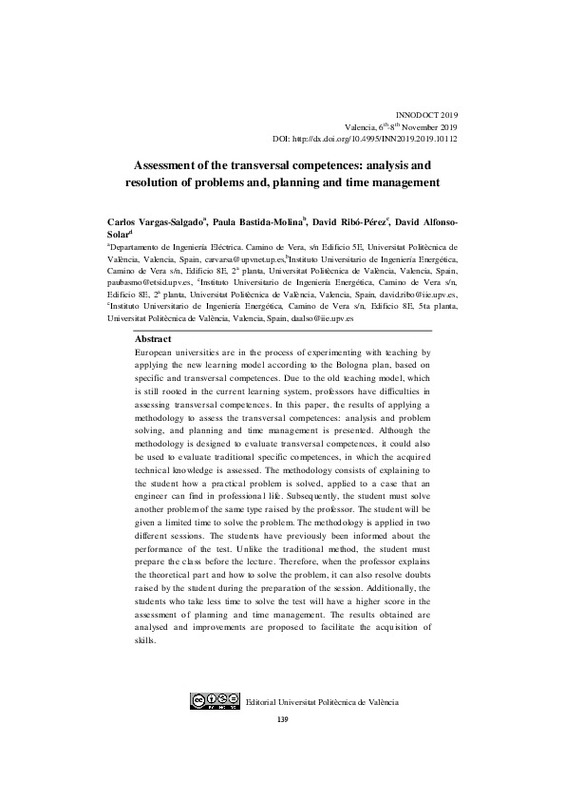|
Resumen:
|
[EN] European universities are in the process of experimenting with teaching by applying the new learning model according to the Bologna plan, based on specific and transversal competences. Due to the old teaching model, ...[+]
[EN] European universities are in the process of experimenting with teaching by applying the new learning model according to the Bologna plan, based on specific and transversal competences. Due to the old teaching model, which is still rooted in the current learning system, professors have difficulties in assessing transversal competences. In this paper, the results of applying a methodology to assess the transversal competences: analysis and problem solving, and planning and time management is presented. Although the methodology is designed to evaluate transversal competences, it could also be used to evaluate traditional specific competences, in which the acquired technical knowledge is assessed. The methodology consists of explaining to the student how a practical problem is solved, applied to a case that an engineer can find in professional life. Subsequently, the student must solve another problem of the same type raised by the professor. The student will be given a limited time to solve the problem. The methodology is applied in two different sessions. The students have previously been informed about the performance of the test. Unlike the traditional method, the student must prepare the class before the lecture. Therefore, when the professor explains the theoretical part and how to solve the problem, it can also resolve doubts raised by the student during the preparation of the session. Additionally, the students who take less time to solve the test will have a higher score in the assessment of planning and time management. The results obtained are analysed and improvements are proposed to facilitate the acquisition of skills.
[-]
|









